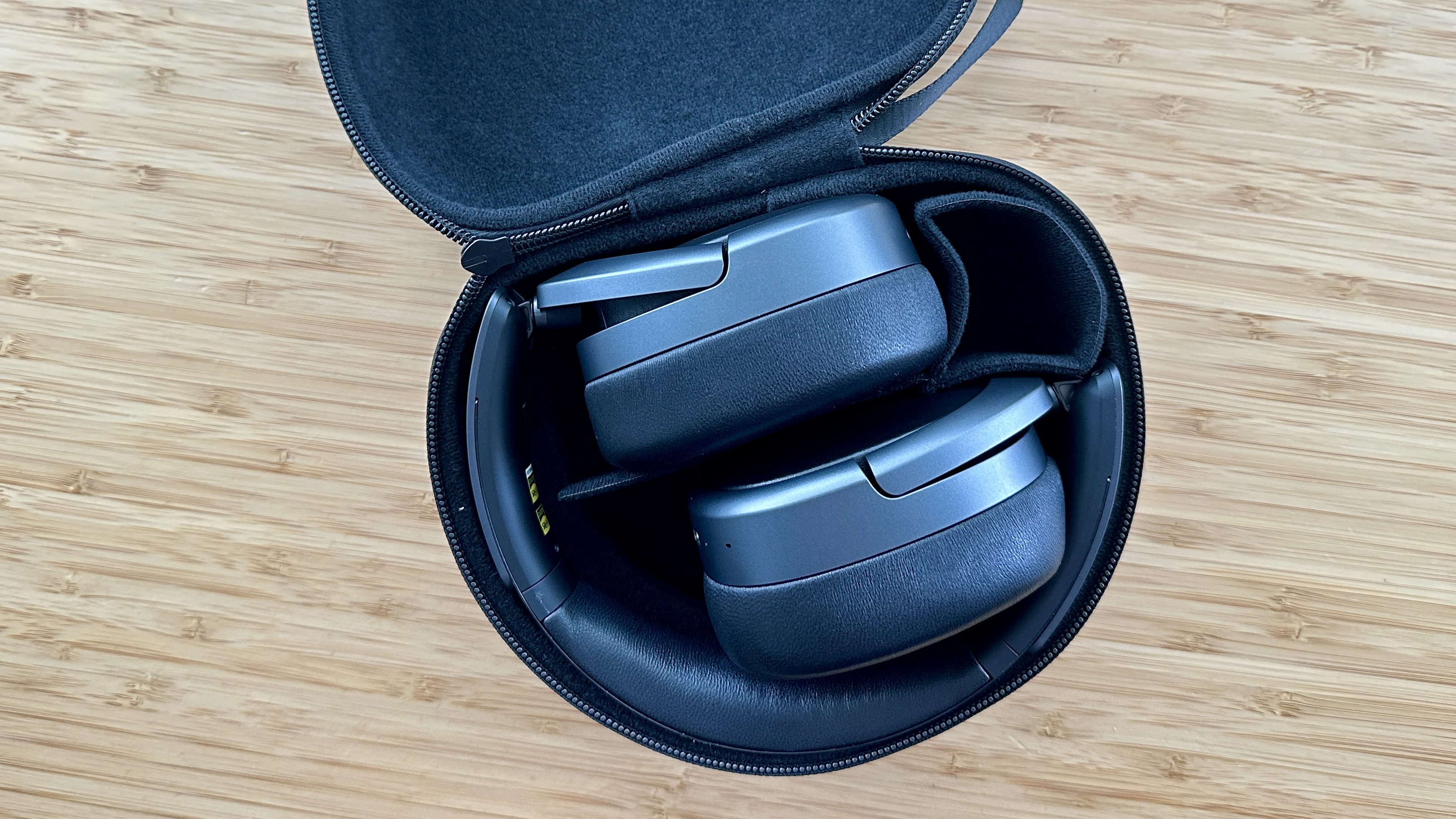
Edifier Stax Spirit S5: Two-minute review
Edifier is no stranger to the idea of creating a product that, by rights, ought to cost a fair bit more than it’s charging – but with the Stax Spirit S5 wireless over-ear planar magnetic headphones, it might just have outdone itself.
Small and reasonably light where most planar magnetic designs are big and unreasonably heavy, the S5 also have a lot of cutting-edge wireless features. Bluetooth 5.4 with LDAC and aptX Lossless codec compatibility is not to be sniffed at, and neither is aptX Voice for telephony. Having said that, though, the lack of active noise-cancellation will put some people off – and the use of animal hide isn’t exactly going to widen the S5 appeal either.
But let’s imagine neither of these things concern you greatly. What you’re left with is a pair of comfortable, well-made, smartly presented and impressively specified wireless over-ear headphones with an absolute stack of positives where sound quality is concerned. These are as open, as detailed and as revealing a listen as of the best wireless headphones at anything like this price – and they basically demand an audition.
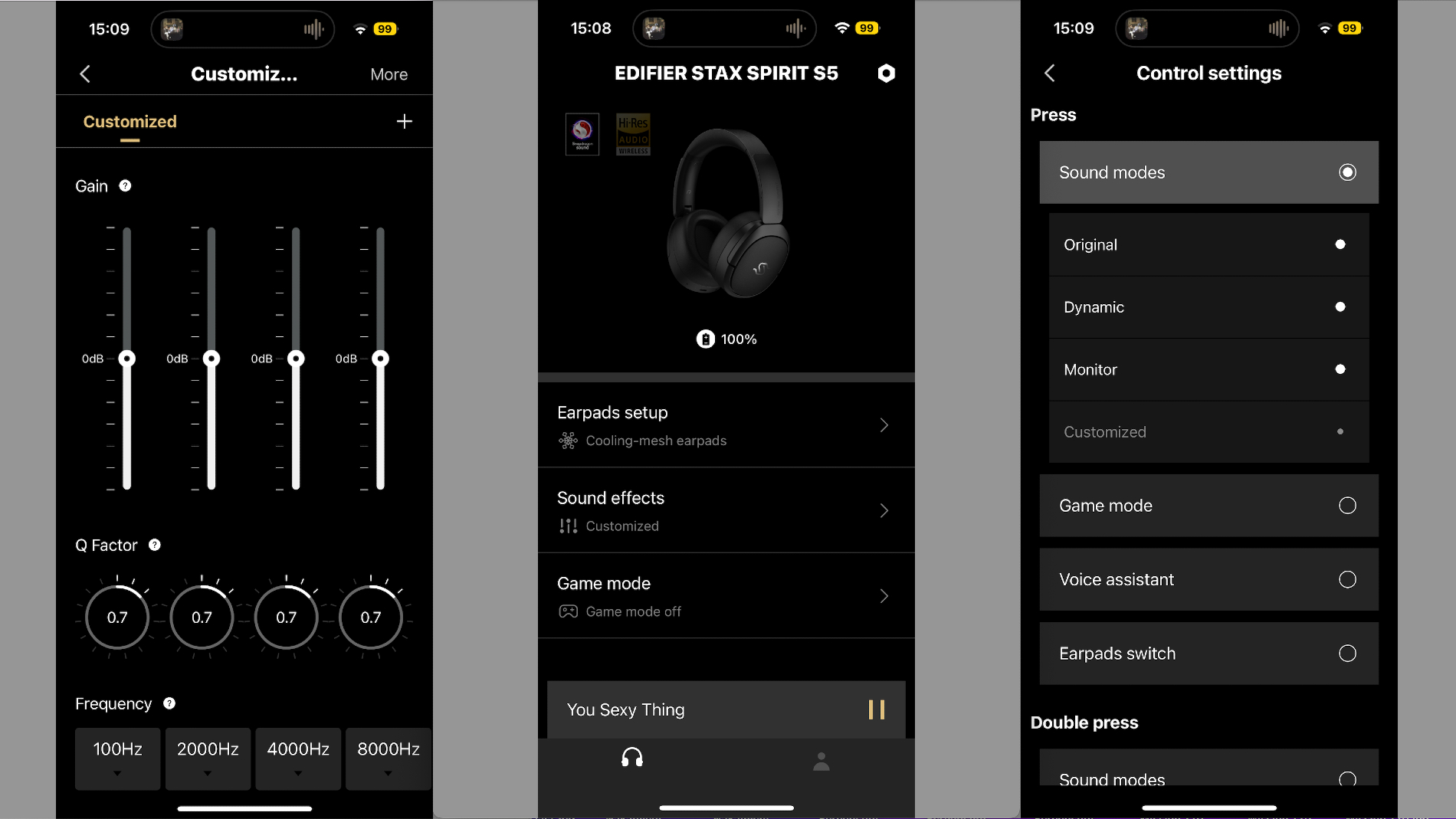
Edifier Stax Spirit S5 review: Price & release date
- Released July 10, 2024
- Price: $499 / £499 / AU$949 (approx)
Obviously you’re not short of choice if you’ve this sort of money to spend on a pair of the best over-ear headphones. You don’t have to go very far along the alphabet to find brands as credible as Apple, Bose and Bowers & Wilkins with very similarly priced wireless over-ear headphones to sell you. Safe to say, then, that Edifier has its work cut out.
For quite a bit less, you could have the July 2024-release, five-star $279 / £229 / AU$479 Cambridge Audio Melomania P100 wireless over-ear headphones; the Sony WH-1000XM5 can be yours for a little more than that, at around $329 / £319 / AU$549; the Sennheiser Momentum 4 Wireless (which arrived in August 2022) can be found for around $299 / £269 / AU$450 in today's money; the Bose QuietComfort Ultra Headphones are an excellent October 2023-issue pair with a price tag of $429 / £449 / AU$649.
Here's the thing: none of those is a planar magnetic design (praised for its ability to provide extra detail over traditional, dynamic-driver designs). And in case you missed them, the February 2022 Edifier Stax Spirit S3 are a very talented set of headphones indeed. So, plenty to consider.

Edifier Stax Spirit S5 review: Specs

Edifier Stax Spirit S5 review: Features
- Planar magnetic drivers
- 80 hours battery life
- Bluetooth 5.4 with wide codec compatibility
Ordinarily I’d just start ticking off the many and various features these expensive new wireless over-ear headphones have – but in this instance I think it’s important to start with something they go without. Unlike pretty much every price-comparable rival, the Stax Spirit S5 don’t have active noise-cancellation.
Edifier suggests that the carefully ergonomic design of the S5 frame and of the earpads attached to it (more on those a little later) offers a lot of passive noise isolation. And that may be true, but for some people the lack of ANC will be a deal-breaker.
In every other respect, though, the Stax Spirit S5 are specified very thoroughly indeed.
The headline, of course, is the use of planar magnetic drivers to deliver sound. The overwhelming majority of wireless over-ear headphones, at any and every price, use dynamic driver technology (a conical diaphragm driven by a voice coil within a magnetic field) to create sound. The planar magnetic alternative (which uses an extraordinarily thin diaphragm, embedded with wires, suspended in a gap between two magnets that vibrate the diaphragm to produce sound) is less common for two very good reasons: cost and complexity.
The magnets need to be big enough to cover the entire surface area of the diaphragm, which usually results in a bigger, heavier and more power-hungry arrangement. The diaphragms fitted to the S5 are just 2μm thick, and are implanted with the second generation of Edifier’s ‘EqualMass’ wiring. By connecting different numbers of wires of the same width in a symmetrical structure, Edifier is confident that uniform driving force can be achieved - the diaphragm will move back and forth with the same momentum across its entire surface, and thus minimising distortion.
The S5 are no less lavishly specified elsewhere. They use Bluetooth 5.4 for wireless connectivity, and because they feature the Qualcomm QCC5181 SoC they support cutting-edge codecs like LHDC, LDAC and aptX Lossless – with an appropriate source of music they can serve up digital audio content of 16bit/44.1kHz resolution losslessly, as well as lossy 24bit/96kHz. aptX Voice is also on board, which is deployed in an effort to deliver best-in-class call quality. Multipoint connectivity is on the menu too, and those Android users with a device running ‘Marshmallow’ or later can benefit from Google Fast Pair.
Battery life is a whopping 80 hours from a single charge. Admittedly that’s measured when streaming AAC-derived stuff at midrange volumes, but surely the broad point is obvious: the S5 have better battery life than almost any of the other headphones you might be considering. And in the unlikely event they should require charging from flat, 15 minutes will buy you 13 hours and it takes just 90 minutes to get back to full.
Control happens using a fairly restricted selection of physical controls on the edge of the right earcup (just above the USB-C slot), or the rather more comprehensive ‘ConneX’ app that’s free for iOS and Android. The buttons handle ‘power on/off’ and ‘volume up/down’, and there’s also a ‘multi-function’, the exact function of which can be specified in the app. The app is also where you’ll find wide-ranging EQ adjustment options, selection buttons for the like of ‘game’ mode and multipoint pairing, and so on. The left earcup, meanwhile, features a single 3.5mm input - Edifier supplies both USB-C and 3.5mm cables to facilitate hard-wired listening.
- Features score: 4/5
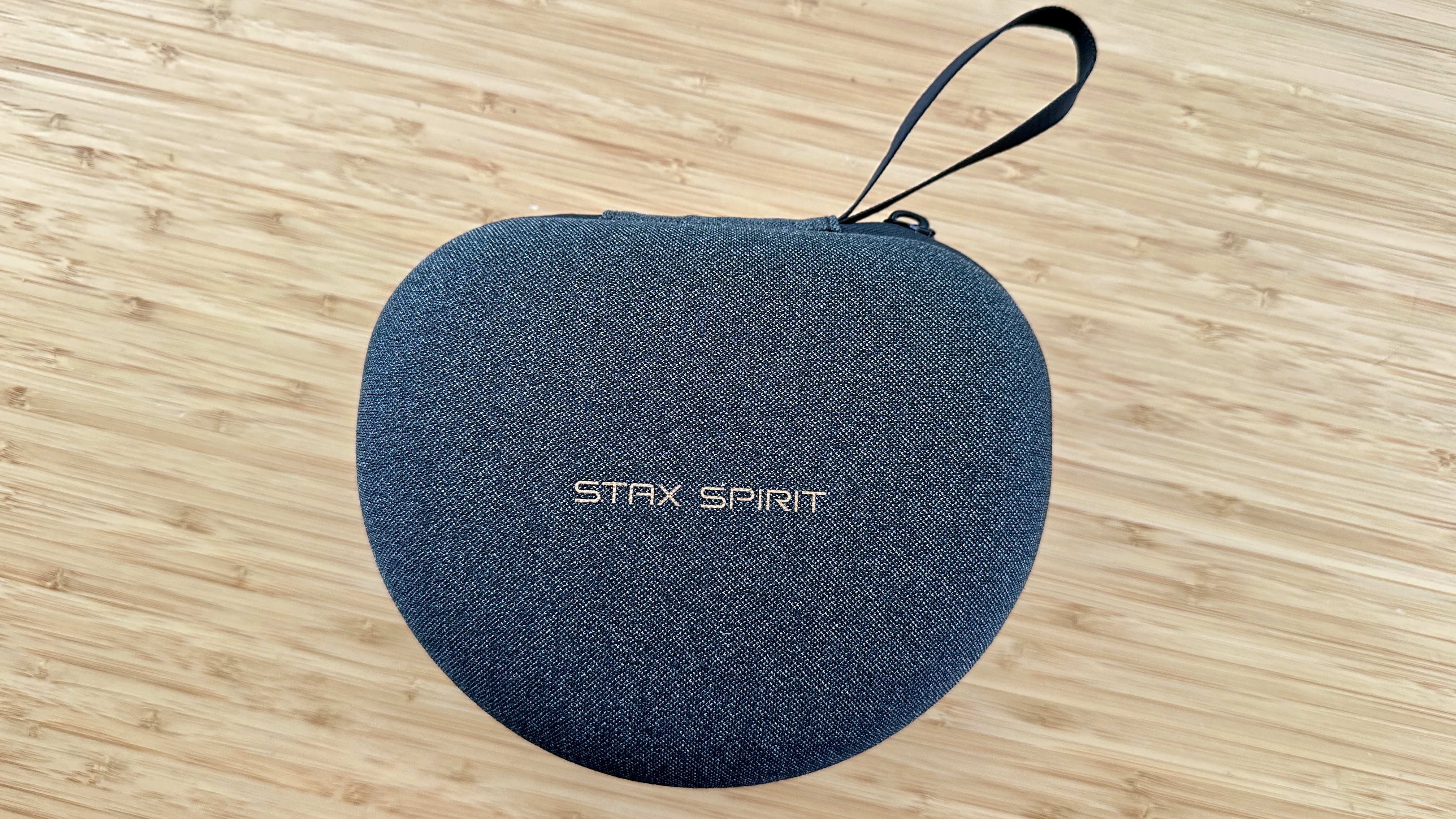
Edifier Stax Spirit S5 review: Sound quality
- As detailed a listen as they come
- Positive, entertaining and informative sound
- High-frequency reproduction doesn’t enjoy big volumes
It doesn’t matter if you’ve listened to a recording plenty of times before now – I’m confident the Edifier Stax Spirit S5 will find some tiny aspect of it or detail within it that you’ve never heard (or, at least, noticed) before.
For me, it is a 24bit/192kHz FLAC file of Neil Young’s Borrowed Tune streamed via a digital audio player using the LDAC codec. The harmonic variations and dynamic fluctuations in the harmonica playing are fuller, more alive and more complete than I’ve ever heard before. And once it becomes apparent this pair of headphones is able to identify previously unsuspected nuance at the very edges of a recording, you’ll find yourself listening to tune after tune in order to discover what else you’ve been missing.
So yes, there are remarkable powers of resolution and detail retrieval here. But that’s far from the only talent the S5 exhibit. They’re a direct, positive and unequivocal listen, able to entertain just as readily as analyse. They seem willing and able to perform this way no matter the standard or resolution of the content you’re listening to.
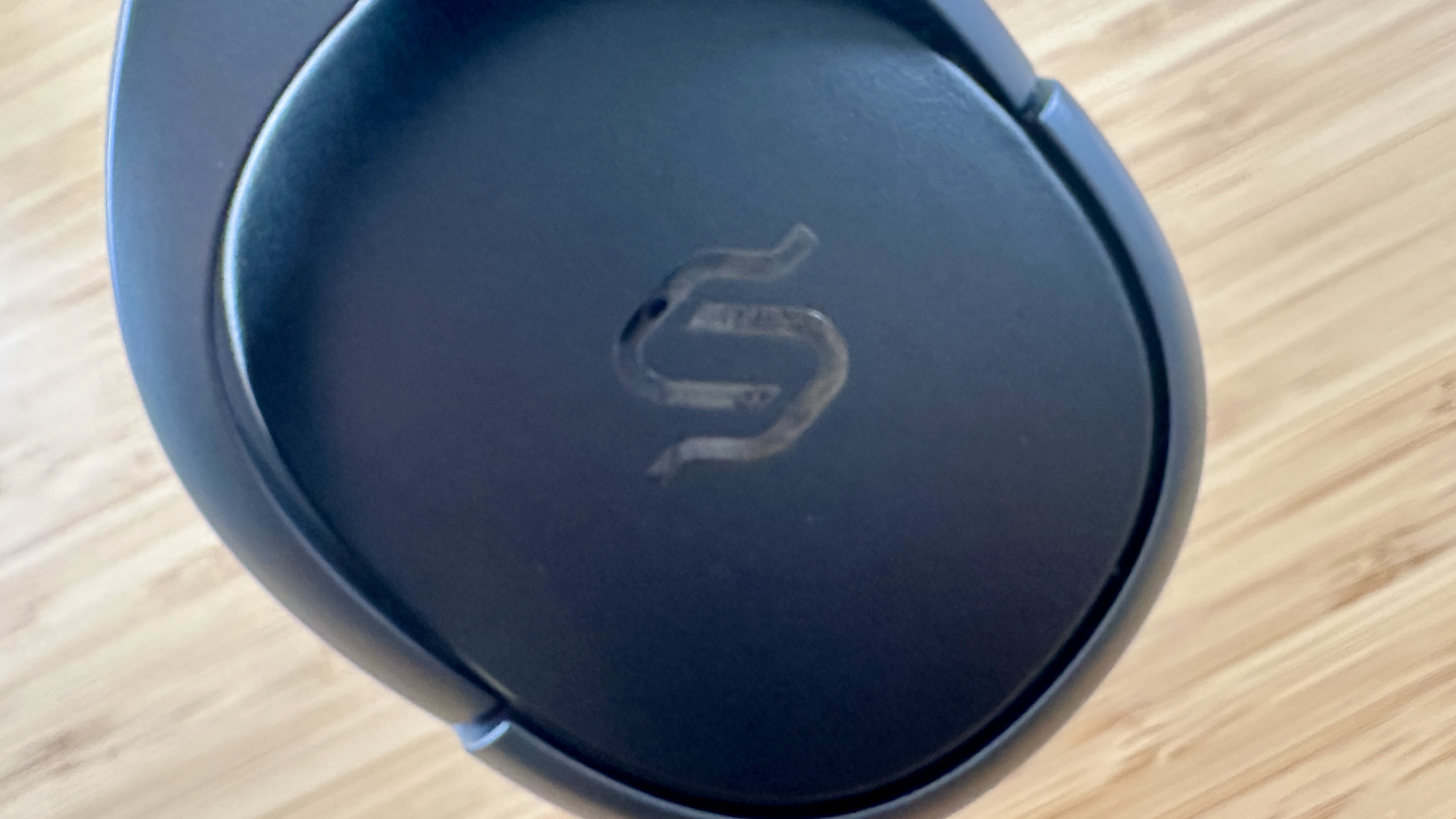
Low-frequency information is deep, varied and has proper substance – but though there’s plenty of straightforward punch here, control is such that momentum levels are high and rhythms get described confidently. Midrange insight is equally impressive, and vocalists of every type have their character, motivations and, quite often, competence described in the barest terms – the S5 communicate with real eloquence, and allow a singer ample expression. And the top of the frequency range is similarly substantial, similarly varied and similarly informative – as long as you’re not listening at significant volume, anyway. Listen very loud and the top end can harden up more than somewhat.
Integration of the frequency range is nicely achieved, and the overall tonal balance is neutral-going-on-cool. There’s a stack of dynamic headroom available when a recording shifts up its intensity or volume, and the attention to detail extends deep into the most minor harmonic deviations.
The Edifier create a large and persuasive soundstage on which all of this can happen, too. It’s deep and wide, properly organised and explicit in its layout – so even a recording with numerous competing elements is easy to follow. Every aspect of a recording gets a little pocket of space in which to operate, and there’s sufficient elbow-room at every stage. But despite the spacious nature of the layout, a recording is still unified into a coherent whole.
As far as noise reduction goes, Edifier is correct when it says that there’s a fair amount of passive isolation offered by the way the Stax Spirit S5 fit. Certainly if you’re listening at home, not much below a distant car alarm is likely to disturb you. But if you’ve experienced headphones with active noise-cancellation, using the S5 while out and about is going to seem peculiar – and not in a good way.
- Sound quality score: 4.5/5
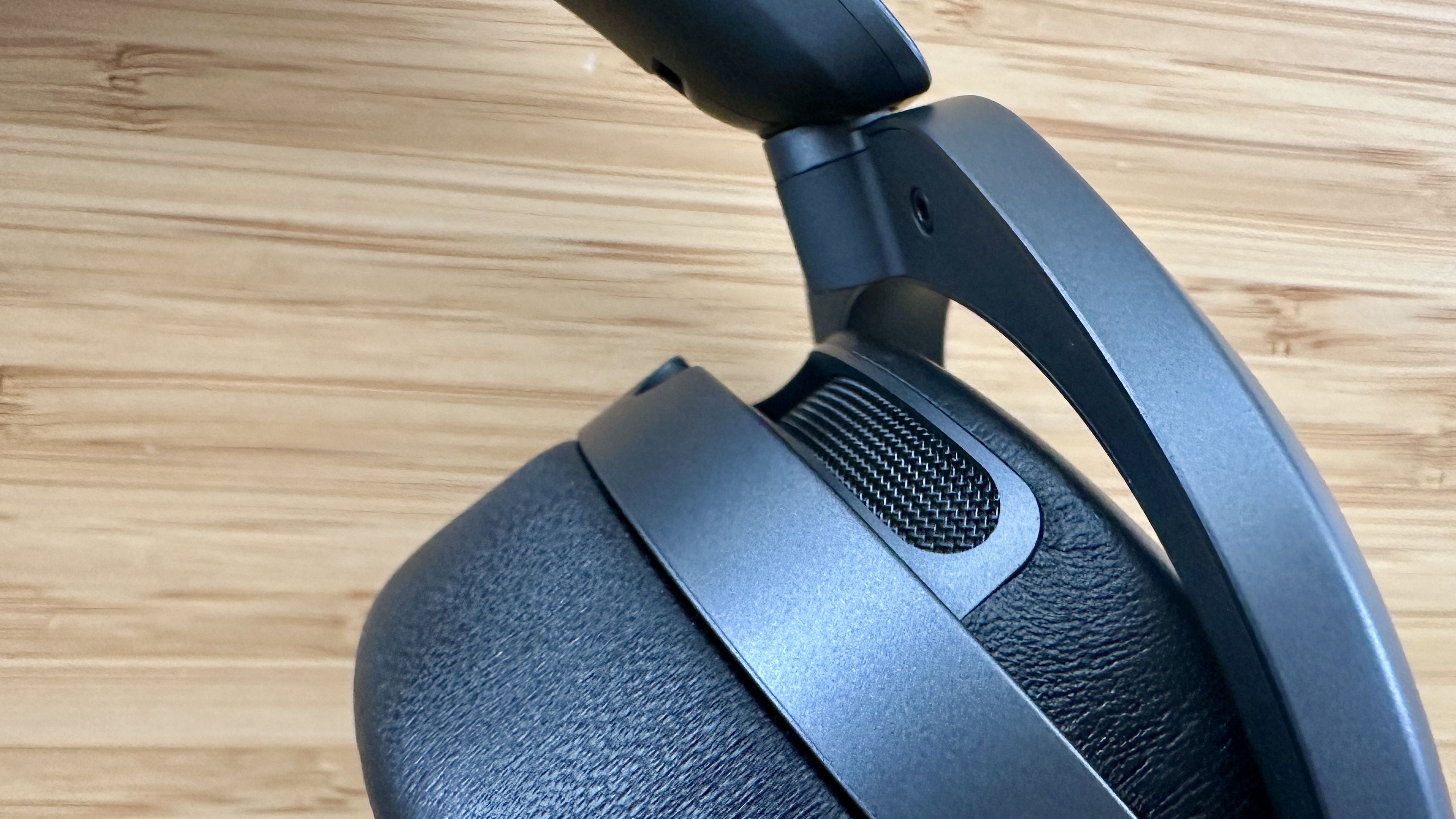
Edifier Stax Spirit S5 review: Design
- 347g
- Comfortable and easy to wear
- Liberal use made of animal hide
Just as the ‘features’ section started with a bit of a downer before rallying strongly, so it is with ‘design’. Edifier cares not for the concerns of vegetarians or vegans - that much is obvious from the use of cow hide for the backs of the S5 earcups and lambskin for one of the two sets of earpads it provides. It’s a weird decision to have come to, and those who find the use of these materials distasteful are well within their rights to ignore the Stax Spirit S5 from here on out.
By prevailing planar magnetic standards, the Stax Spirit S5 are agreeably compact and, at 347g, impressively lightweight. The clamping force, the hanger arrangement and the padding at the contact points is all nicely judged - and the ‘cooling’ mesh earpads that Edifier supplies as an alternative to the lambskin numbers take much longer to heat your ears during use, too.
The headband adjustment mechanism feels solid. The headphones are hinged to the point that they’ll fold helpfully small, so the supplied travel case is a fair bit smaller than the norm. The ‘shades of black’ finish is pleasingly realised, too, so not only are the S5 comfortable over the long haul but they don’t make you look in any way ‘try-hard’ while you’re wearing them.
- Design score: 4/5
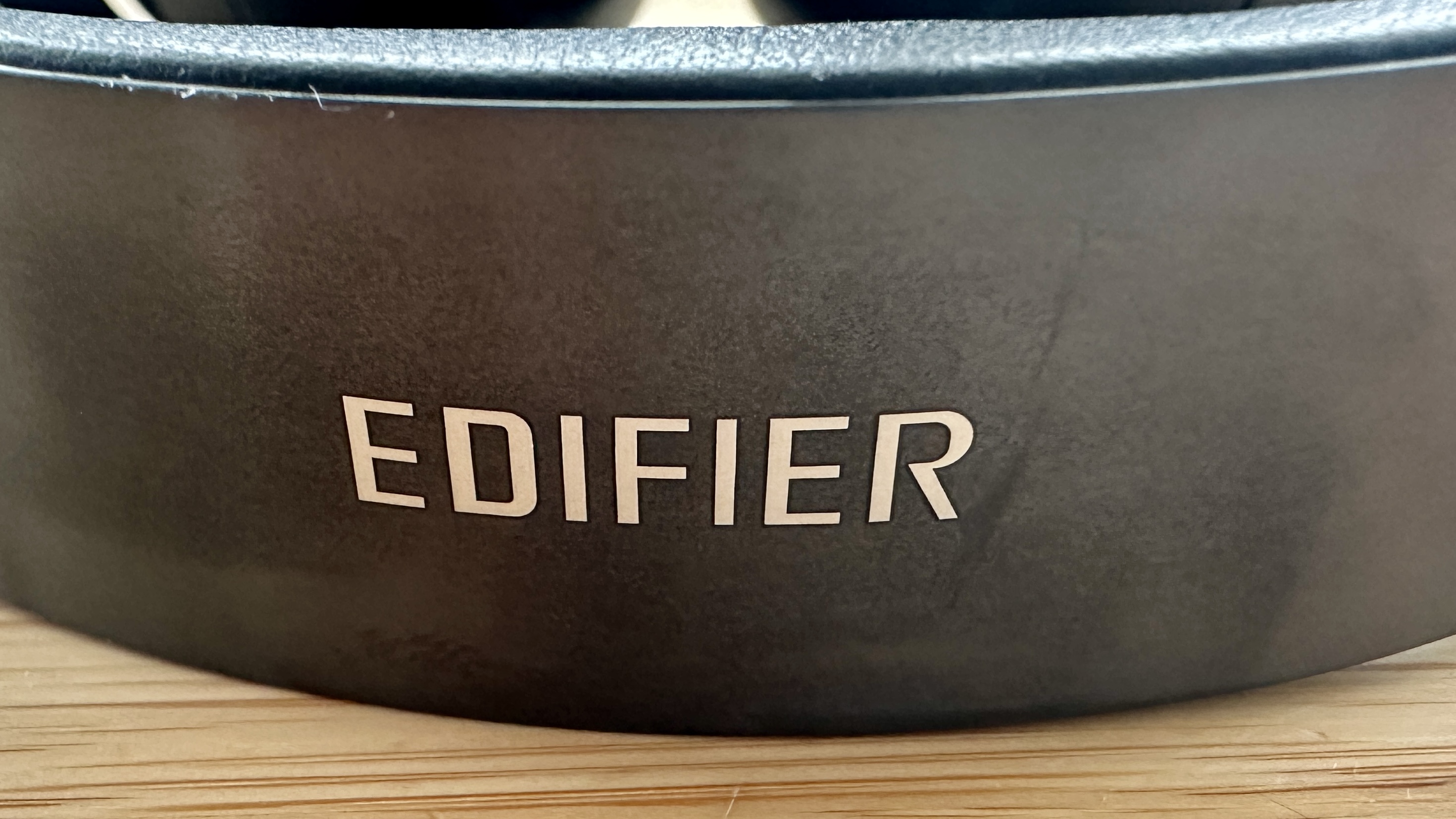
Edifier Stax Spirit S5 review: Value
- Excellent sound-per-pound value
- No ANC
- Use of leather will mean a 'no' for some users
These are not Edifier’s most affordable planar magnetic over-ear headphones – but nevertheless, at $499 / £499 they’re a fair bit more affordable than the majority of planar magnetics out there. Take into account the great wireless specification, also factor in the lack of active noise-cancellation, consider the build quality and the use of questionable materials, and last but not least the way they sound… the S5 represent unarguable value for money where sound quality is concerned, and cover plenty of bases besides.
- Value score: 5/5
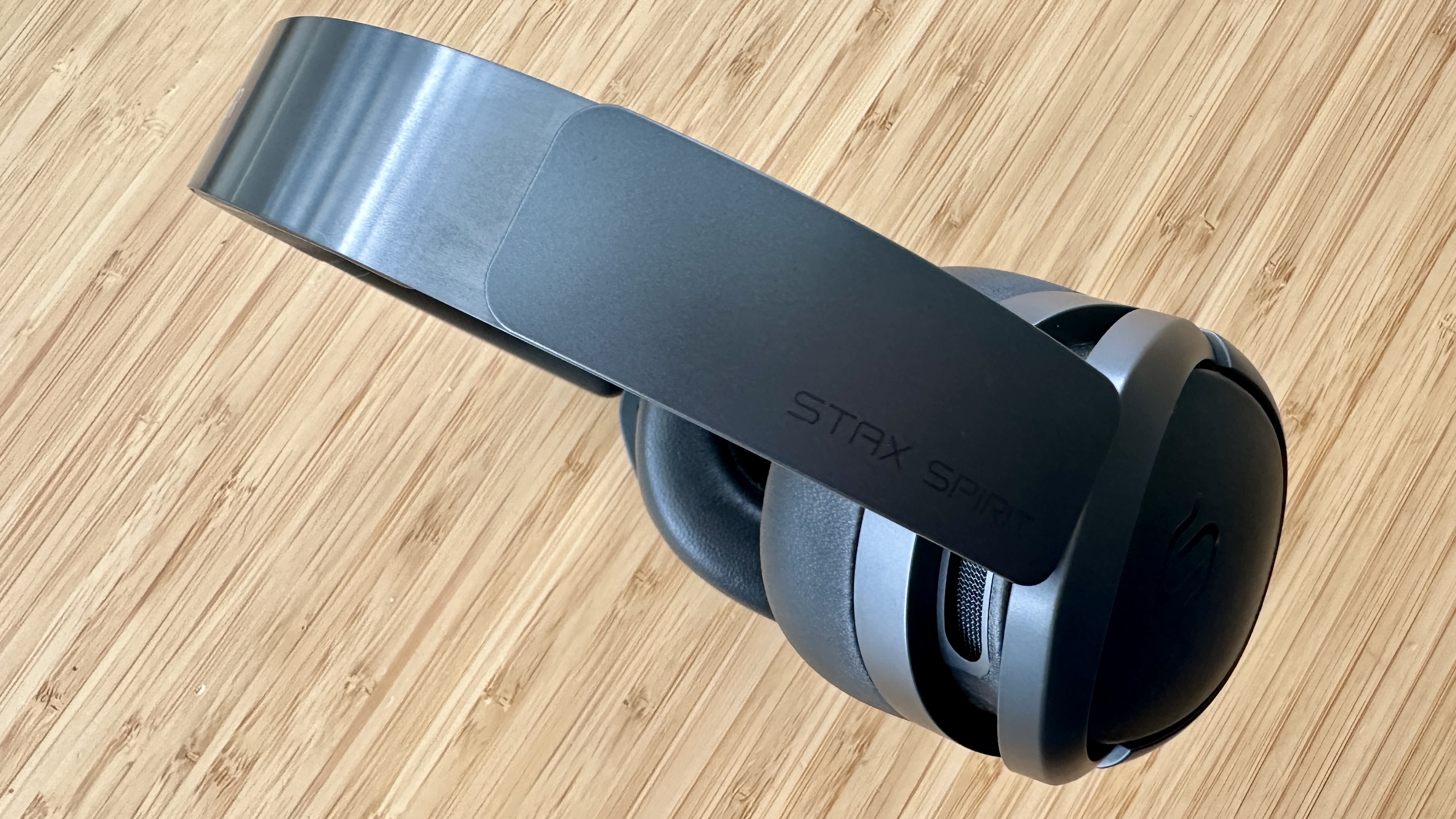
Should I buy the Edifier Stax Spirit S5?
Buy them if...
Don't buy them if...

Edifier Stax Spirit S5 review: Also consider
The Audeze LCD-1 planar magnetics cost even less than the Edifier Stax Spirit S5 (hurrah!) but their open-backed design makes them unsuitable for public listening, sadly. FiiO’s FT5 planar magnetics are more affordable than the S5, too – but although they sound splendid, they are (for want of a better description) massive, which is going to put some prospective customers off. They’re not wireless, either.
If you can bring yourself to consider dynamic driver designs too, however, a whole world of possibilities opens up – Apple AirPods Max, Bose QuietComfort Ultra Headphones, Bowers & Wilkins Px8, Sonos Ace… the list goes on.

How I tested the Edifier Stax Spirit S5
- Wireless and wired connections
- Various different sources 3: numerous file types and resolutions
- Numerous file types and resolutions
Of course, wireless headphones tend to be used wirelessly - and so I listened to the Stax Spirit S5 connected wirelessly to an Apple iPhone 14 Pro and a FiiO M15S digital audio player. I also listened to the headphones when wired directly to an Apple MacBook Pro and to the same computer via an iFi iDSD Diablo 2 headphone amplifier. Lots of different music, of lots of different file types and sizes, and a fair few different Bluetooth codecs, were deployed too - and listening happened both indoors and out in the real world.
- First reviewed: July 2024
- Read more about how we test







